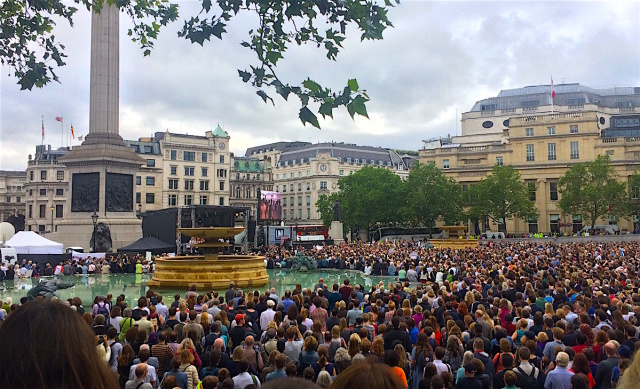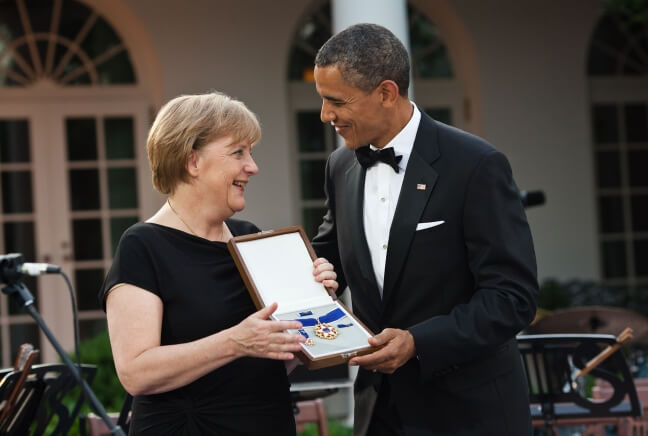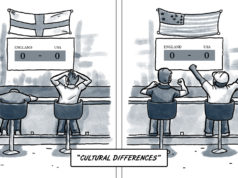
It is not often that I begin writing something with the phrase “I hope I am wrong.”
But that is indeed the case here, looking forward from what happened Thursday when Britain voted to leave the European Union. Never before has a country made such a consequential decision based solely on race-baiting and spite.
Historical fears, modern benefits
In 1973, when British membership in the European Union was achieved, a certain backlash about immigration from Britain’s former imperial holdings had also crept into the national consciousness.

Since Britain joined, however, the EU has deepened its institutions and expanded its competencies. This is a good thing. Students from all across the EU now participate in EU-financed exchange programs either in other EU countries or further abroad, some at institutions in the United States. European manufacturers and small businesses are more competitive in the world, partially because they operate under a single set of rules (instead of 28 different sets) and uniform access to a single market of 500 million consumers. Speaking of consumers, they enjoy far superior protections than peers in the United States. For example, the EU has higher standards for the food quality and easy recourse to consumer-protection authorities.
EU regional development funds go to poorer regions within the Union to support jobs and infrastructure projects. So it was cruelly ironic when, the day after nearly 57 percent of the U.K. county Cornwall voted to leave the EU, the head of the local government pleaded not to lose the $111 million the EU invests in Cornwall every year. But alas, what’s the old saying about being a day late and $111 million short?
So why, if the EU does so much for Britain, did Britain vote to leave it? Well, in the cold light of Monday morning some 72-hours later, there is no better way to describe the motivation than as a pack of lies.
‘The simple matter of race baiting’
The “Leave” campaign offered two main arguments to Britons.
First, advocates criticized Britain for sending the EU almost $500 million per week (the actual figure is around $200 million and doesn’t account for nearly $1.5 billion in investment and rebates to the U.K.). According to the Leave campaign, if Britain could only break free from the EU, that money could be used for hospitals and schools. That campaign promise was broken mere hours after the vote was over.
Second, Leave forces employed the simple matter of race-baiting. Between leading anti-EU politician Nigel Farage’s poster of refugees taking Britain to the “breaking point” and the “nudge nudge, wink wink” Monty Python politics of “let’s take back control of our borders,” the real message being promoted was, “Don’t much care for these foreigners, aye?” In reality, British borders were never in the control of anyone but the British, but Brits are too polite to actually say they don’t like you if you’re a foreigner. Nudge nudge, wink wink.
Where did this second message find its greatest resonance? In the post-industrial North — the areas most dependent on the EU’s regional development programs but forgotten by successive London-centric governments afraid to devolve power and money to the regions. The areas that voted for Leave are the same areas that, in 2009, elected members of the Holocaust-denying British National Party to represent them in the European Parliament.
‘An economic and security issue that affects us all’
A British friend asked me this past week why I was so concerned with the results of the election. My answer was the same reason I wrote this commentary: The Brexit is an economic and security issue that affects us all.
First, Britain’s unnecessary exit from the EU has created extraordinary economic turbulence that may yet lead Europe and — possibly the United States — into a recession. That will exacerbate the ongoing Greek debt crisis, and it could lead to wider economic calamity.
Second, European unity is a pillar of stability within the international system, and the U.K. unified their leadership role within NATO with their considerable influence within the European Union. For all of Friday’s talk about the “special relationship” between the U.S. and U.K., Britain has chosen to put itself in a position where it will have drastically less power and influence on the world stage.
The United States now has no other choice but to look elsewhere for its key strategic partner within Europe. To that end, I can only advise that I understand Berlin to be a cool city, though I’ve not had the chance to visit myself.

TP for your Britain-hole
The Brexiteers charged into this campaign with no plan for what follows next. They have no idea.
I’m not joking.
The leading lights of the campaign would say, “Oh, we want a relationship with the EU like Albania. Or Norway. Or Canada. Or Switzerland.” But all are vastly different models. The “plans” that each of the competing leaders of Leave have offered might as well have been scribbled on the back of toilet paper taken from their favorite pubs. None of them were real plans, and none of the Brexiteers have any idea what to do next. In addition, Britain is now bitterly divided between “Leavers” and “Remainers,” with the latter feeling robbed of their European future.
We now face several years of extraordinary uncertainty while dealing with several existing challenges to the international order. The West has to face these challenges and overcome them, and with a quasi-isolationist U.K. in the future, steady American leadership is only going to become more crucial. It’s one of the reasons I wrote a piece on NonDoc in support of Hillary Clinton for president, and the Brexit makes it all that much more important. Meanwhile, Germany and France will both face general elections next year. Their moderate leaders — America’s friends — will be distracted as they seek to head off challenges from the far-right. The best friend of Europe’s extreme right and left, Vladimir Putin will be laser focused, rest assured.
NPR’s Robert Siegel asked the the historian Simon Schama how future historians would describe the referendum result in 50 years. Schama replied that Brexit was “the greatest act of unforced national self-harm yet known in modern history.”
I hope Schama and I are wrong about the consequences, but I fear we will not be.
(Correction: The cutline for this post’s featured image was updated to reflect an accurate date of the pictured rally.)





















